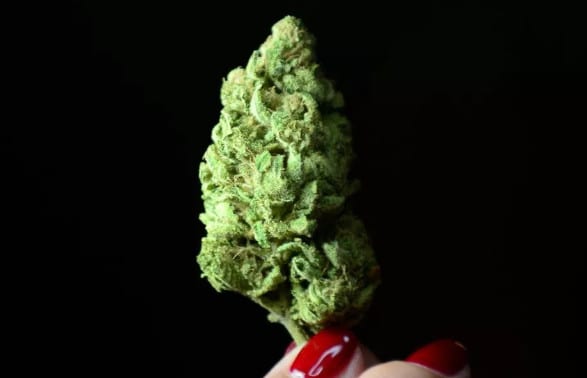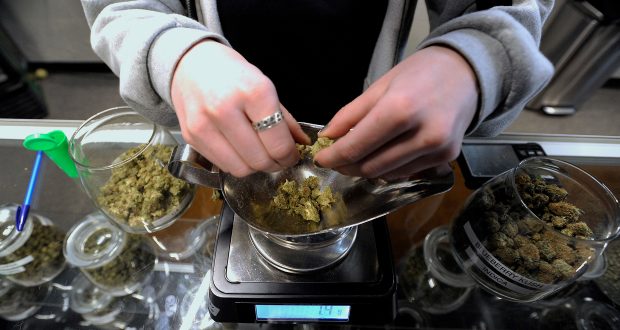Rich DiMarco cares about cannabis, including the terminology used to describe it.
“Nobody who is serious about cannabis should ever call it marijuana,” the Greensburg resident said. “Marijuana is a slang name that has no scientific connection at all to cannabis.”
DiMarco, a retired engineer, said he’s been a fervent supporter of cannabis since he was 14. With medical marijuana recently legalized by the state, and growers, processors and dispensaries about to open statewide, he decided to turn his passion into a second profession.
The result was the Pennsylvania Cannabis Association, one of many organizations and businesses that have cropped up in anticipation of the industry’s rise in the state.
The association opened an office on East Otterman Street in Greensburg, and DiMarco said he hopes the nonprofit trade group will become a “chamber of commerce for the cannabis industry.”
Entrepreneurs, investors and activists all over the state are hoping to get in on what they think is a potential economic boom.
“This was about redefining the economic landscape in Pennsylvania,” said Gabe Perlow, CEO of PurePenn, which will grow and process medical cannabis in McKeesport. “Year one, it’s adding new, well-paying jobs.”
PurePenn plans to start production by December with 25 employees. That number could double or triple within a few years, Perlow said.
The company will hold a job fair at 2:30 p.m. July 27 at the groundbreaking ceremony for its facility at RIDC Industrial Park.
The Pennsylvania Medical Cannabis Society is another trade organization, based in Carnegie and Harrisburg, attempting to unite the various stakeholders in the medical cannabis industry.
“We’re trying to make sure we can kind of bring everybody under that one umbrella,” said Executive Director Patrick Nightingale.
The society acts as a point of contact between industry members, doctors, patients and legislators, Nightingale said. Lately it has focused efforts on educating doctors and patients.
“We are of the firm belief that the success and failure of this industry is 100 percent tied to patient participation,” Nightingale said.
Meanwhile, DiMarco is shifting the Pennsylvania Cannabis Association’s efforts away from education toward industry services. He plans to get growers, processors, distributors and more to buy $5,000 yearly memberships in exchange for discounts on various services provided by third parties.
“My business isn’t providing medical cannabis; it’s providing assistance to everyone in the supply chain,” DiMarco said.
The association has deals with lawyers, insurance companies, credit card processors and more service providers who will give discounts to its members.
Navigating legal, financial and logistical hurdles can be difficult and expensive for startups, especially in the cannabis industry where there are still many uncharted waters, DiMarco said.
Perlow said trade organizations like the Pennsylvania Cannabis Association and the Pennsylvania Medical Cannabis Society will be a necessary part of the industry, though PurePenn has yet to join one.
“Before we jump into any industry organization, we want to make sure that their mission and their values align with ours,” he said.
DiMarco, Perlow and Nightingale expect the industry to grow dramatically in the next few years. But there are still many unknown factors, most of them legislative, Nightingale said.
“We have yet to have a single plant grown in a single Pennsylvania growth facility, and we have yet to have a single patient have medical cannabis purchased in a Pennsylvania facility,” he said. “We have a lot of wild cards; a lot of things are in flux right now.”
DiMarco is more optimistic. The legalization of medical marijuana is just the first step. The law only allows marijuana in a few forms, including pills, oils and creams. DiMarco believes it is only a matter of time before smokeable and edible varieties are legalized. That’s when the real boom will begin, he said.
“The cannabis industry is going to be a huge business space,” he said.
If the Pennsylvania Cannabis Association is successful, DiMarco said he wants to expand the model to other states with a burgeoning medical cannabis industry, such as Florida and Michigan.
Perlow said he hopes the federal government will eventually stop opposing medical cannabis, allowing facilities like his to ship products to other states.
Westmoreland County’s first medical marijuana dispensary is slated to be built on a vacant lot on East Pittsburgh Street in Greensburg. Keystone Integrated Care’s planned 3,000-square-foot building is the only dispensary in the county to receive state approval so far.
credit:triblive.com













